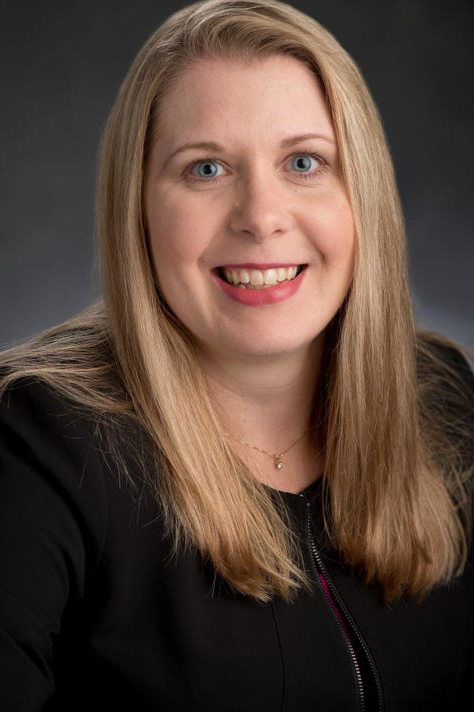Profile: Jessica Norris
Profile: MSU's Title IX coordinator uses civil rights law to combat sexual violence and misconduct
 Jessica Norris is committed to ensuring that MSU is a safe and inclusive place for every student. She believes civil rights laws – specifically Title IX of the federal Education Amendments of 1972 – provide a powerful tool for advancing that goal.
Jessica Norris is committed to ensuring that MSU is a safe and inclusive place for every student. She believes civil rights laws – specifically Title IX of the federal Education Amendments of 1972 – provide a powerful tool for advancing that goal.
Title IX may be best known as the law that requires schools and colleges to provide equal opportunity for women and men in athletics. But it goes further than that, prohibiting discrimination on the basis of sex in any program offered by an educational institution receiving federal funds. Sexual harassment and sexual violence are considered discrimination under Title IX.
Since joining MSU in December 2015 as coordinator for Title IX and the Americans with Disabilities Act, Norris has systematically strengthened and expanded the university’s compliance with Title IX. She has enhanced training programs for MSU’s 65,000 students, faculty and staff on their rights and responsibilities under Title IX, upgraded policies and procedures, and streamlined the investigation and adjudication process for reported incidents. Under her leadership, the number of Title IX investigators at MSU has tripled from three to nine.
For Norris, better communication and collaboration among the many campus programs and offices that focus on the problem have been a top priority.
“This isn’t the work of one office,” she said. “This is the work of a community. As a community and as a society, it takes all of us sharing our ideas and talking about the issue to develop creative solutions and innovative ways to tackle this problem.”
In her first 18 months at MSU, Norris spearheaded the launch of these new programs:
- A student leadership institute, “Engaging and Empowering Men to Combat Sexual Violence,” which trained 30 influential student leaders to engage other men as allies.
- A bystander training program funded by a grant from the state of Michigan aimed at bartenders and cab drivers in the East Lansing community.
- A campus-wide awareness campaign, “It’s On Us,” modeled after a campaign introduced by the Obama administration to address the epidemic of sexual assault on college campuses.
- A new Title IX website that consolidates information about campus programs related to sexual misconduct, serving as a one-stop resource for survivors, mandated reporters, volunteers, and others seeking additional information.
- Open forums, town halls and focus groups with campus stakeholders. Just this spring, Norris organized a dozen focus groups and spoke with community members at four forum/town hall events aimed at better understanding what is working and what else is needed in the effort to eradicate sexual misconduct and violence at MSU.
Among the next items on Norris’ agenda:
- Continuing efforts to engage the campus community through identification of new and innovative channels to engage students, faculty and staff, such as through social media.
- Launching a phase-two bystander training program through the MSU Sexual Assault and Relationship Violence program, with a new grant from the state of Michigan.
- Increasing partnerships among researchers and service providers on campus to identify effective interventions and programs.
- Connecting with area high schools to build education and awareness before students come to MSU.
Norris understands eliminating sexual violence from our society may take generations. But she is gratified at the progress that Title IX has spurred at colleges and universities in recent decades.
“Much as in the Civil Rights era, the higher education sector has the opportunity to lead the way in changing our society and our culture,” she said. “We have to continue driving forward, trying to be better tomorrow than we are today.
“That’s the path we’re on.”
###

